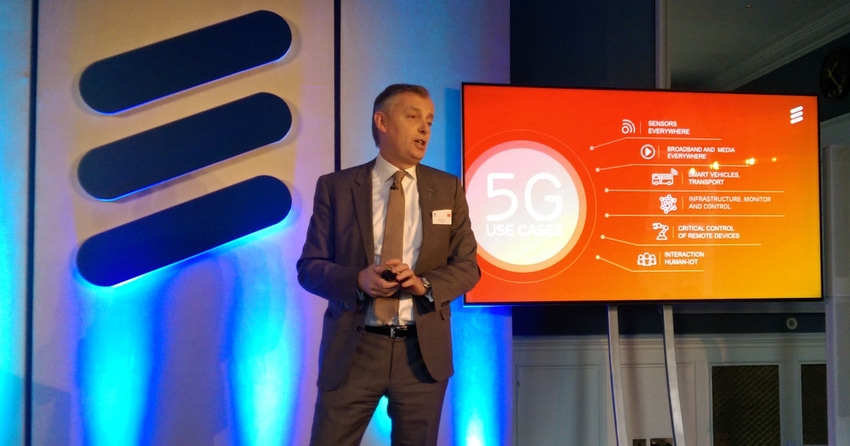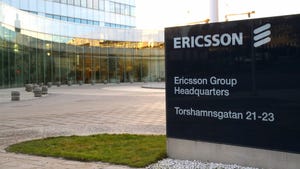Networking giant Ericsson wasted no time after MWC 2016 before its next event – the inauguration of its collaboration with Kings College London over 5G development.
February 29, 2016

Networking giant Ericsson wasted no time after MWC 2016 before its next event – the inauguration of its collaboration with Kings College London over 5G development.
As Telecoms.com observed in its MWC recap, industry talk is currently dominated by the trinity of 5G, IoT and the cloud in creating the ultra-connected future. The event, which took place within KCL, commenced with a presentation from Ericsson CTO Ulf Ewaldsson (pictured), who gave an overview of how he sees these three interact and interdepend.
The Ericsson perspective is that the primary job of 5G will be to connect the billions of future IoT sensors and devices to the sum of all clouds. He made the point that this will be far too complicated for any one technology company to do by itself, hence the need for open standards and extensive collaboration.
We then heard from Ericsson’s Western and Central European head Valter D’Avino, who stressed how important it is for companies like Ericsson to move away from the legacy ‘ivory tower’ R&D strategy to a much more open collaborative one, including academia. Organisations such as KCL enable Ericsson to get feedback from the field and from industry on what is required from 5G.
Prof. Mischa Dohler of the KCL centre for telecoms research, which was founded 20 years ago, came next to talk about the ‘tactile internet’, which he said might more accurately be described as haptic. Essentially this is about using the internet to enable remote physical interactions – something that is likely to be a key feature of the IoT. To ad substance to this vision he introduced three speakers from industry, who have an active interest in how connectivity can augment their day jobs.
Prof. Prokar Dasgupta is a surgeon from Guy’s Hospital who specialises in robotic surgery. He spoke about the potential for remote surgery and the superior precision offered by kit such as the Da Vinci robotic surgery tool. He did stress, however, that we’re still a long way from computers being able to match humans when it comes to things like decision-making and there are massive cultural hurdles to overcome before people start trusting machines with anything other than the most rudimentary medical matters.
Matt Griffin from Transport For London observed that London is still growing rapidly and lamented the tube as the biggest notspot in the world. He said getting cellular connectivity on the tube is a business, rather than technology issue, but expressed confidence that the business case has been made and said some work has already started on rolling it out, as well as an SDN-driven fibre network.
Lastly we heard from Ali Hossaini of the Cinema Arts Network, who spoke about how the current trend in the arts is towards multimedia convergence, which includes using technology to enable ‘full immersion’ via things like VR and kinesthesia, as well as remote participation. The latter requires very low latency in the case of musical performances, so he looks forward to seeing what 5G can offer in that area.
Today’s event served to illustrate a predominant theme of MWC 2016 – that the next generation of wireless technology is less about operators and more about industries and their needs. Companies like Ericsson can’t expect to just serve up proprietary technology as a fait accompli, this time it has to be the other way around, with tech companies finding solutions to the future needs of industry.
Discover the latest developments on the road to 5G at 5G World in London 28-30 June 2016

About the Author(s)
You May Also Like







.png?width=300&auto=webp&quality=80&disable=upscale)

.png?width=300&auto=webp&quality=80&disable=upscale)
_1.jpg?width=300&auto=webp&quality=80&disable=upscale)



.png?width=800&auto=webp&quality=80&disable=upscale)